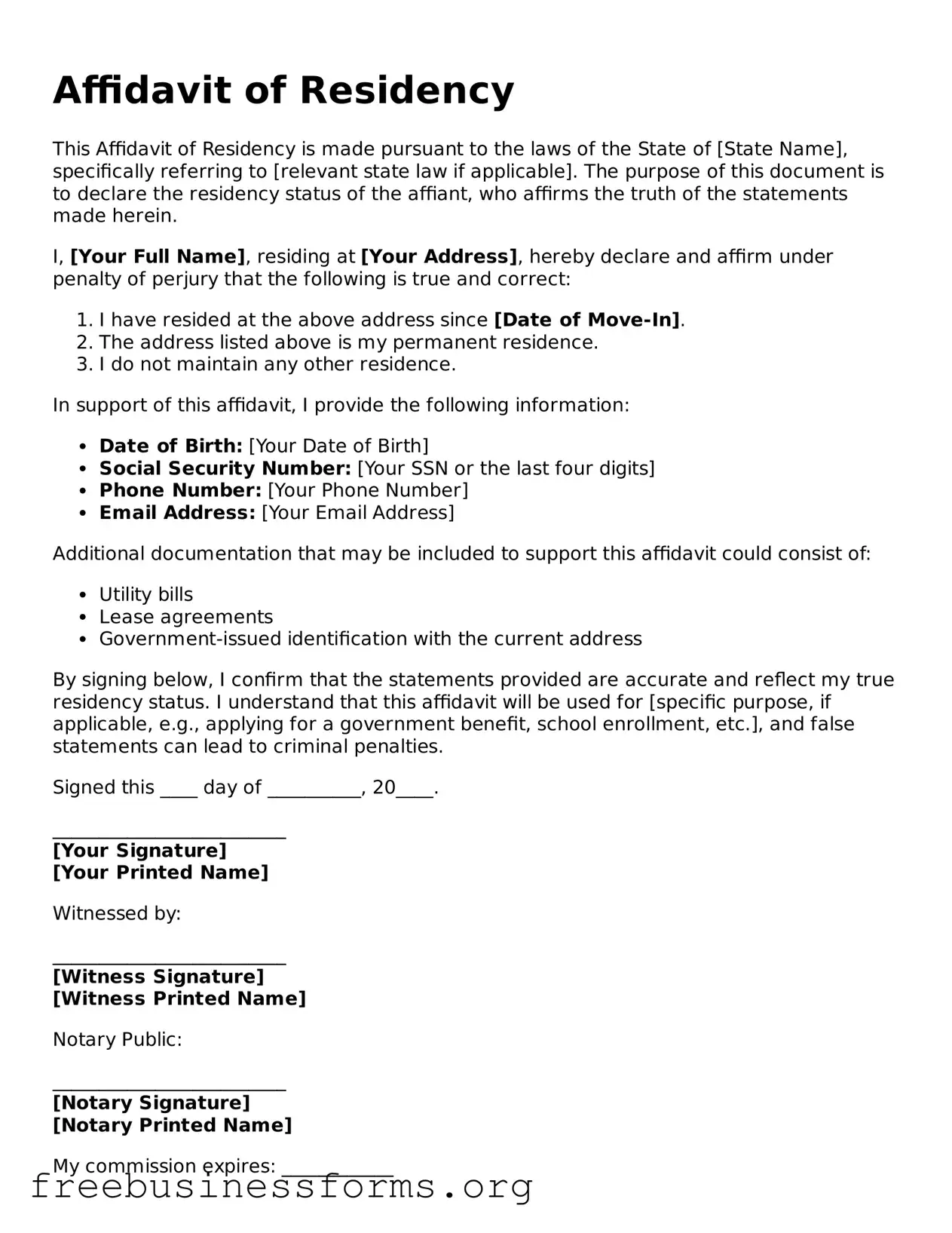Official Affidavit of Residency Form
The Affidavit of Residency form is a legal document used to confirm a person's residence at a specific address. This form is often required for various purposes, such as enrolling in school or obtaining certain benefits. Understanding how to properly complete and use this form can be crucial for ensuring compliance with local regulations.
Open Form Here

Official Affidavit of Residency Form
Open Form Here

Open Form Here
or
↓ PDF File
Quickly complete this form online
Complete your Affidavit of Residency online quickly — edit, save, download.